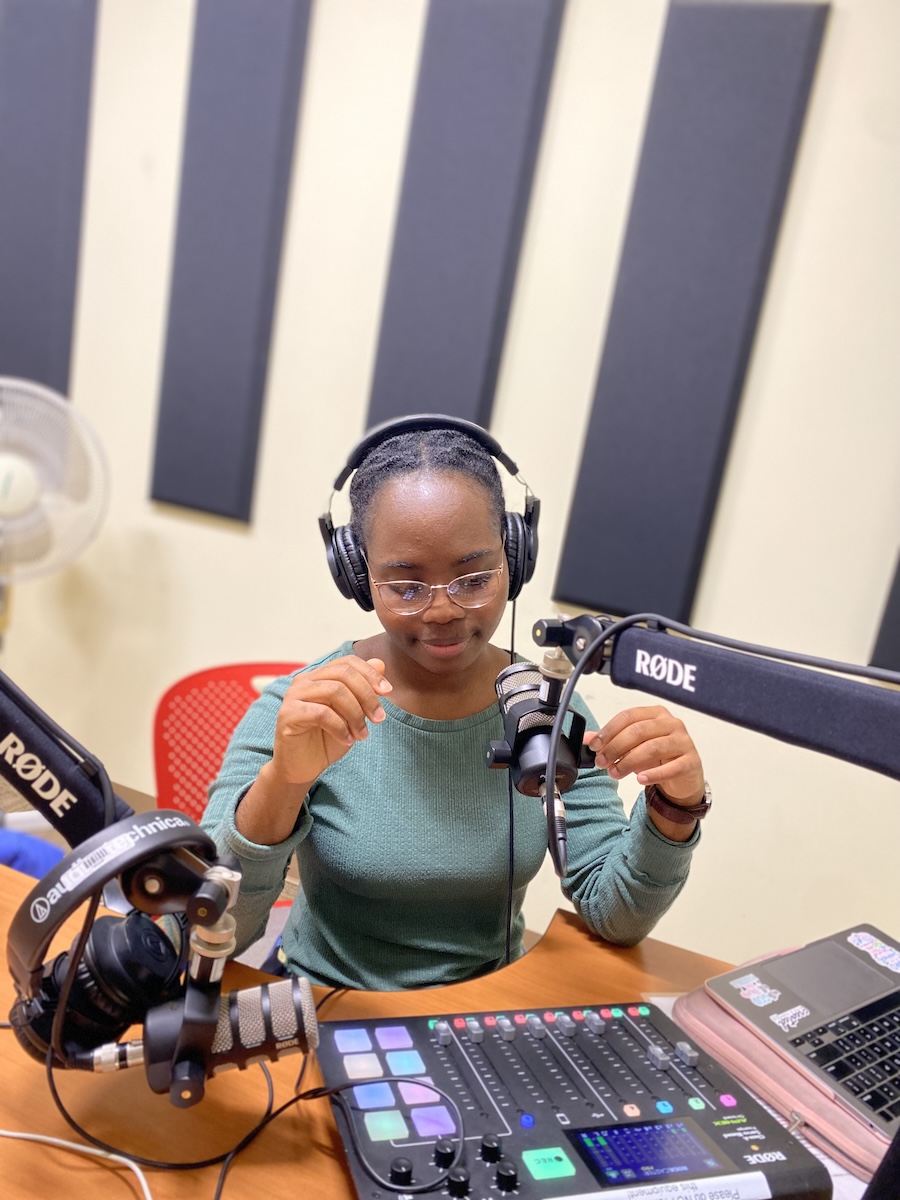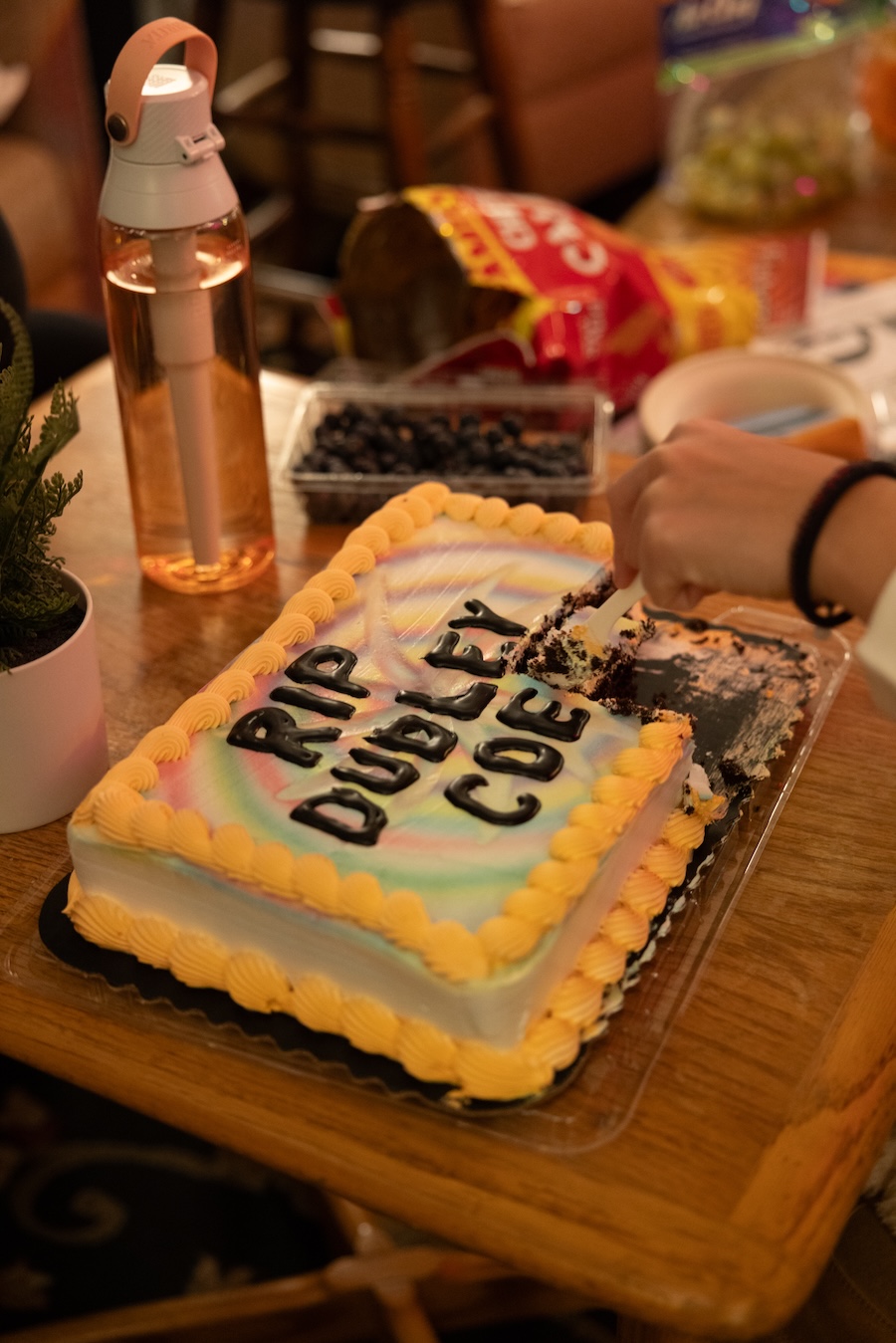Profiles in Residential Life: Tam Phan ’21
By Rebecca GoldfineCollege House proctor Tam Phan ’21 is one of nine proctors living with sophomores in Bowdoin's College Houses, whose residents are responsible for organizing many social, cultural, and intellectual events for the campus community. Additionally, the Houses are affiliated with specific floors within first-year dorms, and frequently organize social events for these students.
This profile is part of a series on students who work for Res Life.
Tam Phan ’21, Helmreich House proctor
Phan, an anthropology major, is the proctor for the twenty-three sophomores living in Helmreich House. This is the first year she's worked for Res Life.
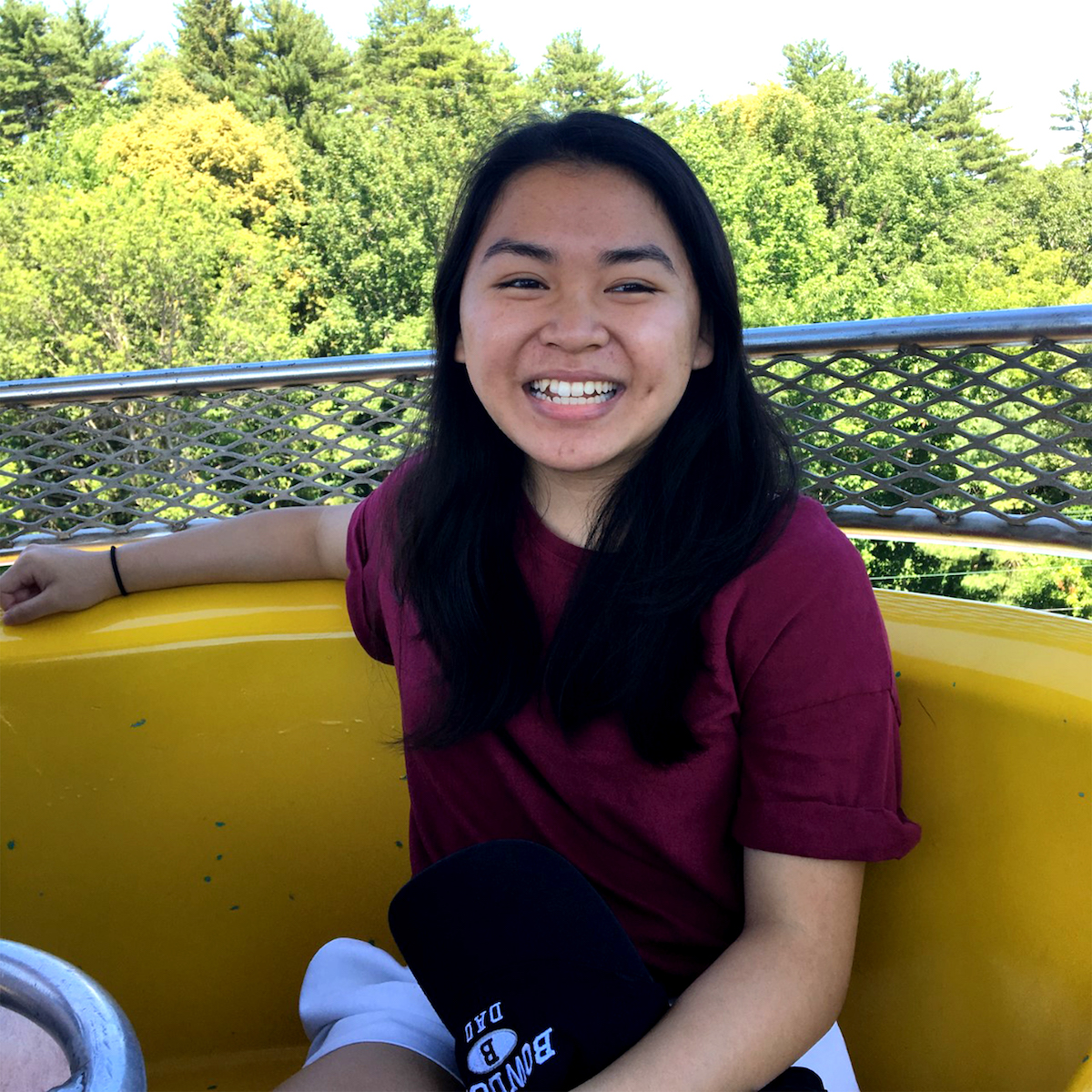
What's your favorite part of being a proctor? "The best thing about working in a College House is you're functioning within the social core of Bowdoin—because College Houses are where the parties take place. I talk to my residents and set ground rules about what happens at parties, to make sure first-years are safe, and if people need help, to help them. And the first party we had went really smoothly; the first-years seemed comfortable. It was really great."
What was the training like for your job? Training was a week and a half [before the semester started.] It was very intense. We got trained on how to detect whether or not to call security for a wellness check—if a student is intoxicated or feeling unwell. Also, we dealt with roommate conflicts—I got trained on how to talk and facilitate discussions between them.
There was also an intense three-day training called Behind Closed Doors, where we run through possible scenarios, and Res Life students act out potential situations, personal things, like eating disorders, sexual assault, or suicidal thoughts. We got trained on how to talk to students, how to make them feel better and to give them the resources they need on campus. The training was really good."
What drew you to this type of work? "As an upperclassman I still wanted to be part of the lower classman community and help facilitate and foster an inclusive environment. Students are transitioning from their home life to college, and I wanted to be an instrumental part in that by creating programming and getting to know the lower classmen.
Also, I think when I came to Bowdoin I was pretty isolated, I only cared about what I did. Then I started to get involved in extracurricular activities and to meet people. And I became more incentivized to join Res Life, mainly because I heard that the students who work for Res Life are the best group of people, and I wanted to be part of that group, too."
And how are your Res Life peers? "During training, I noticed they all have the intention of creating an inclusive community and they really care about people. During training I noticed that everyone I met was really empathetic and willing to listen to your problems."
A bit of background on Residential Life's student program
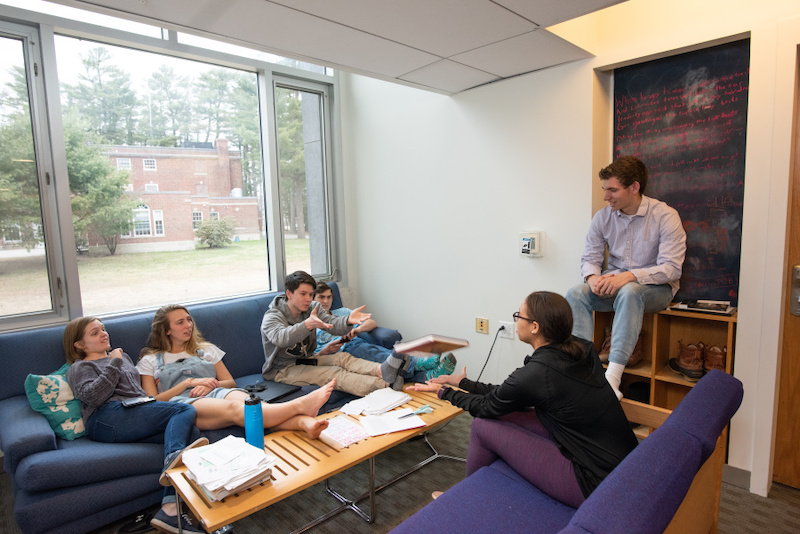
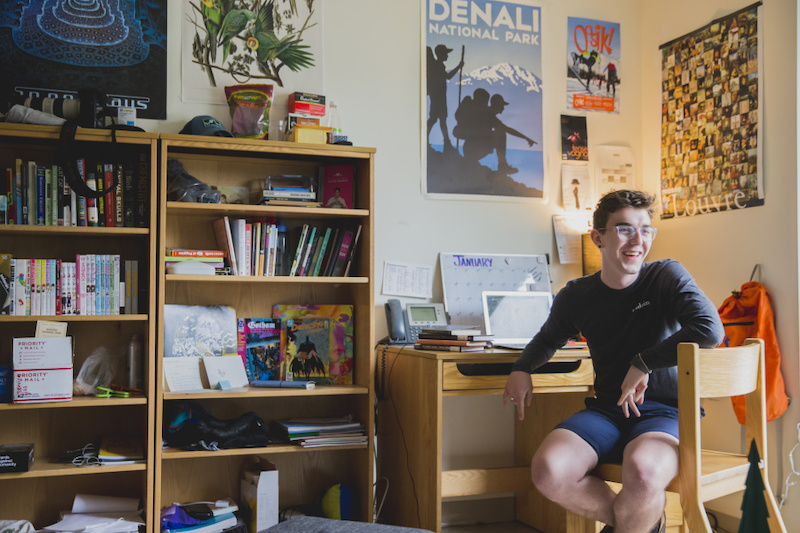



As director of residential education, Whitney Hogan ’07 oversees all the training for her corps of student employees (which includes weekly Wednesday night programs in addition to two intensive trainings in August and January). She says the responsibility of each of the seventy-nine students on the Res Life staff is to ensure every student feels a place of belonging at Bowdoin.
"In the first-year spaces, we're focused on thinking about all of the things that get in the way of making Bowdoin feel like home for someone," she said. "Is it homesickness, is it adjusting to the social scene, is it finding community in the residential hall or outside the residential hall, is it navigating a mental health issue, or figuring out gender expression?"
Res Life staff are trained to remove these barriers, either by helping students one-on-one or pointing them to campus resources. They're trained to address mental and physical health issues and alcohol and drug use—as well as work with diversity and difference.
"We're doing crisis response and making sure people are safe and supported, but we're also thinking critically about how we can make sure people are feeling belonging and community in residential spaces," Hogan said. "So a lot of our training is on inclusion, diversity, and difference, and making sure we're meeting the needs of all students."
There are several types of Res Life staff positions: first-year proctors, residential advisors (RAs), College House proctors, and head proctors and head RAs. All are relatively well-paid campus jobs that are awarded, in a competitive application process, to sophomores, juniors, and seniors. (It's common for over 100 students to apply for about thirty new positions every year.)
Each of the thirty-five floors in the eight first-year residential halls has a proctor who lives in a single on the floor. Additionally, these proctors collaborate with an affiliated RA who lives elsewhere but helps out with dorm programs. In their own dorms, RAs also focus on building cohesive communities. College House proctors live in one of Bowdoin's nine College Houses.
"The common denominator across all people on staff is they believe Bowdoin is a place where everyone can belong. The biggest set of skills are softer leadership skills—how to communicate about difference and across difference," Hogan said. "They can live their own authentic selves and are also pretty magnetic—people are drawn to them."

